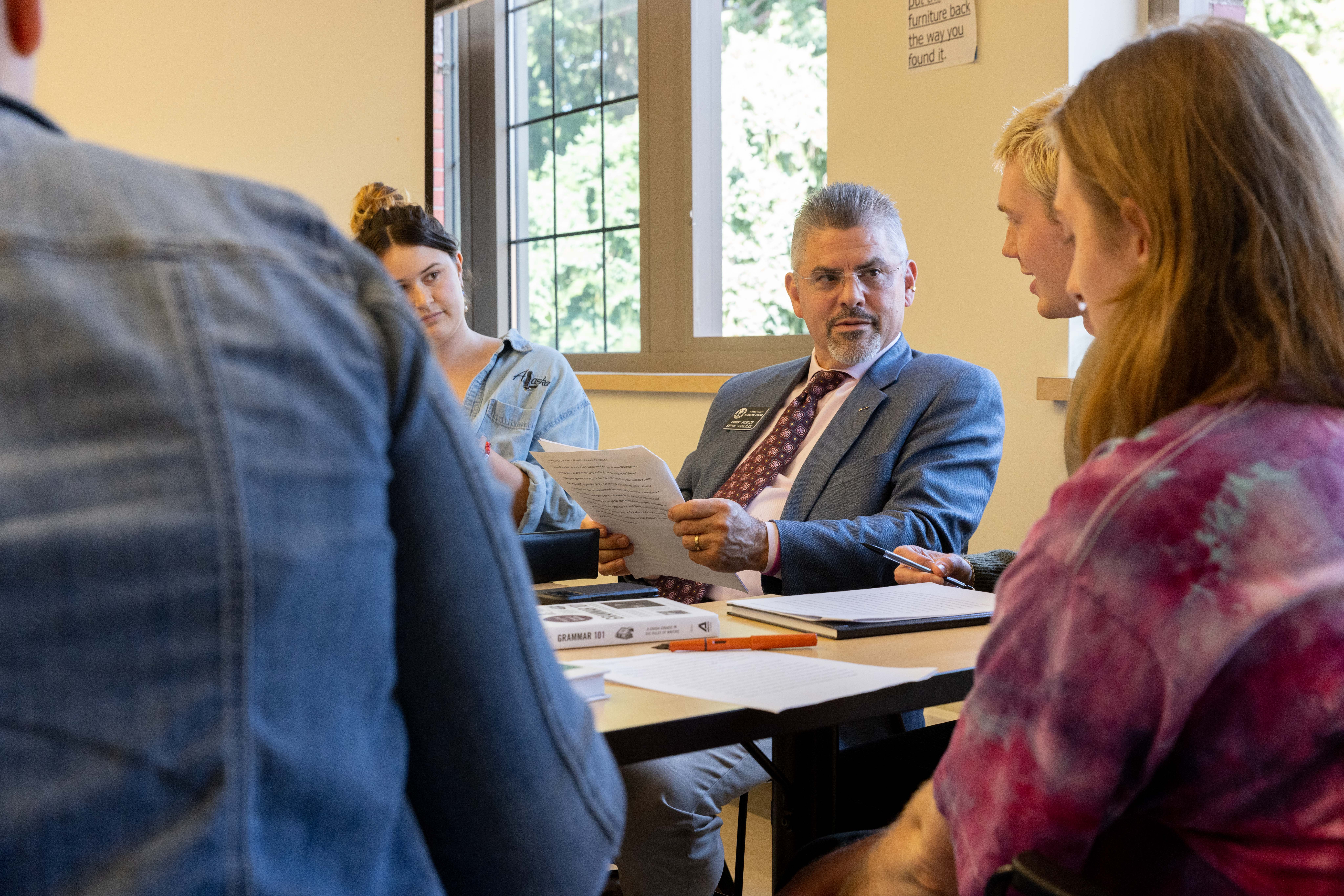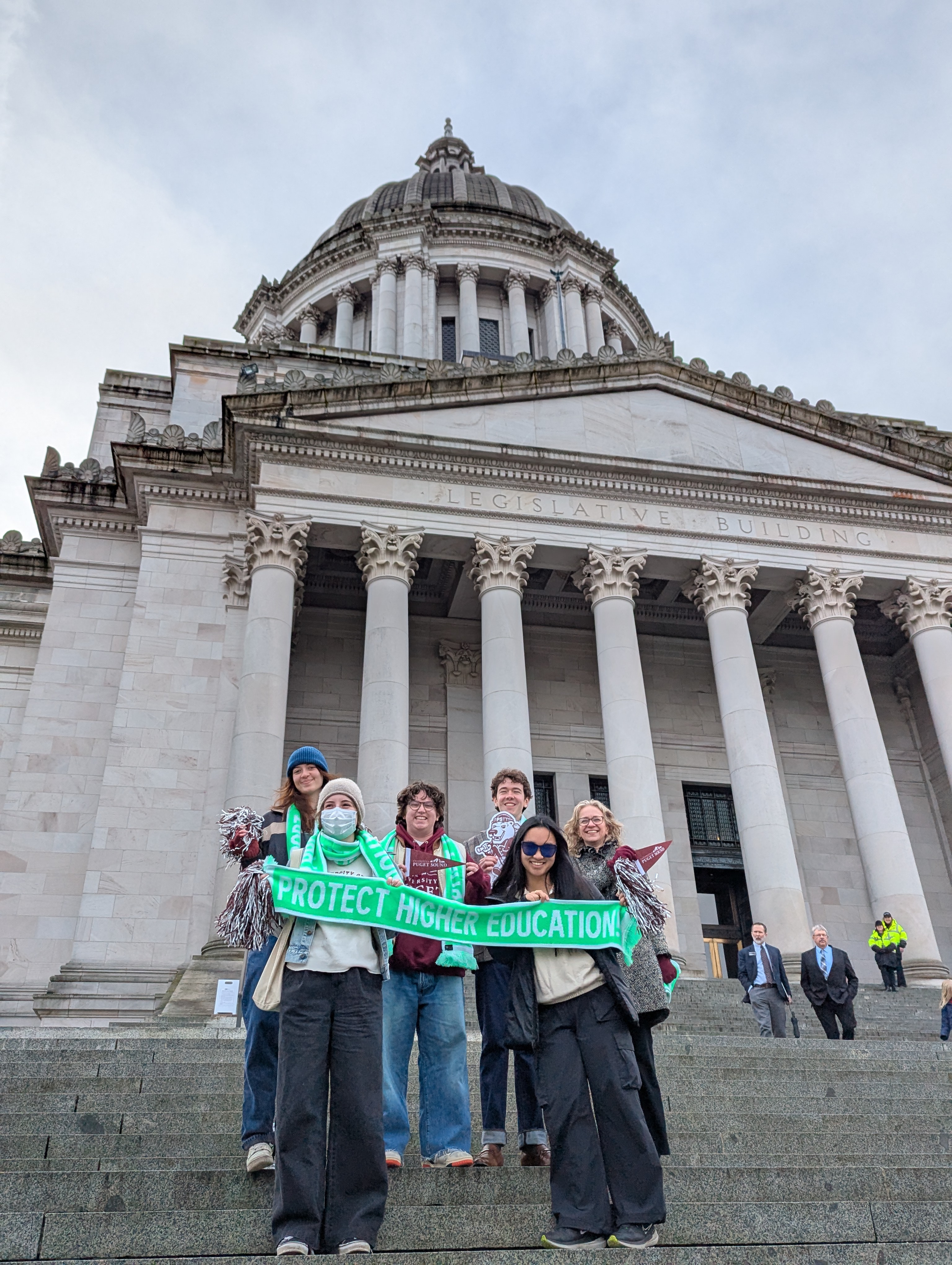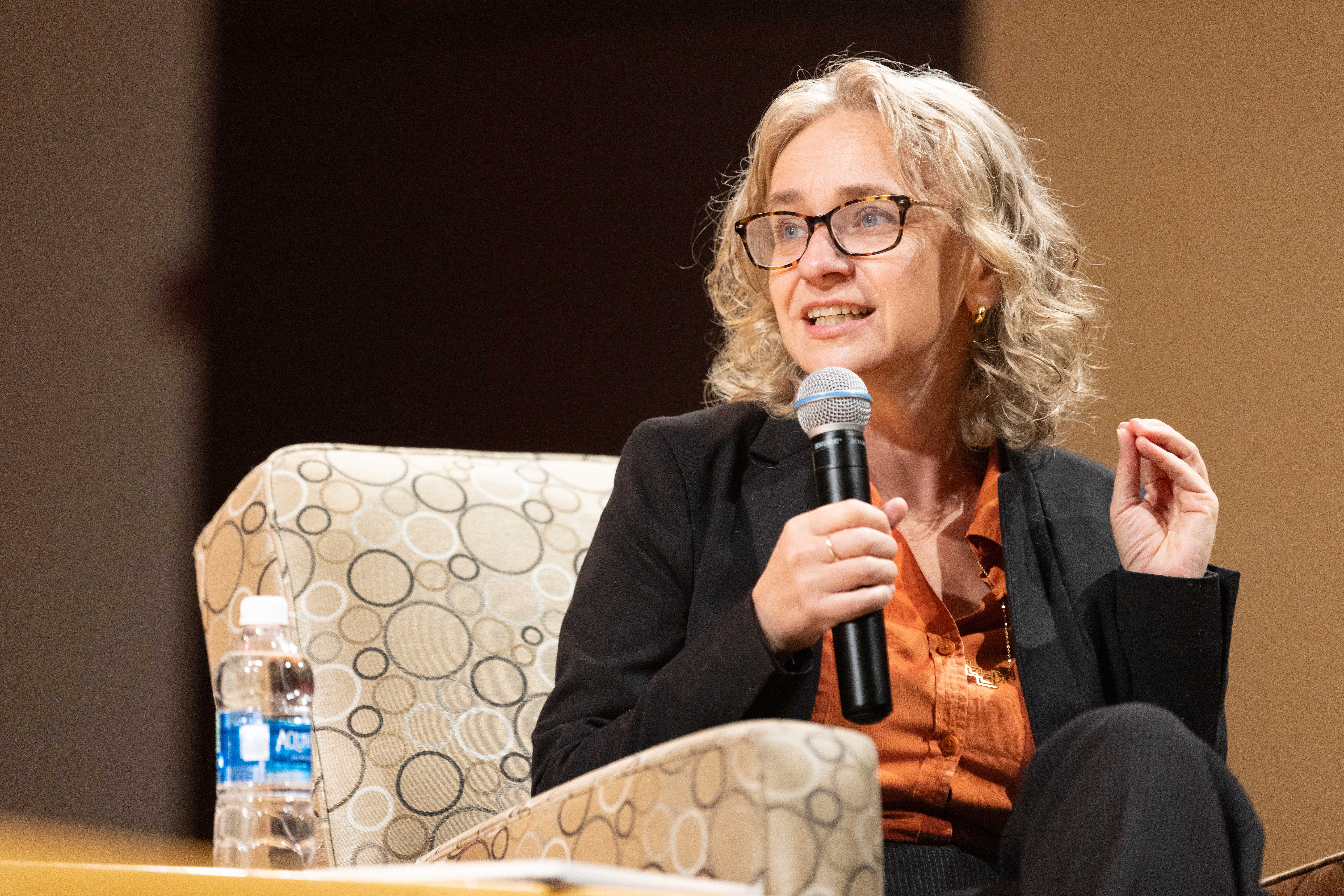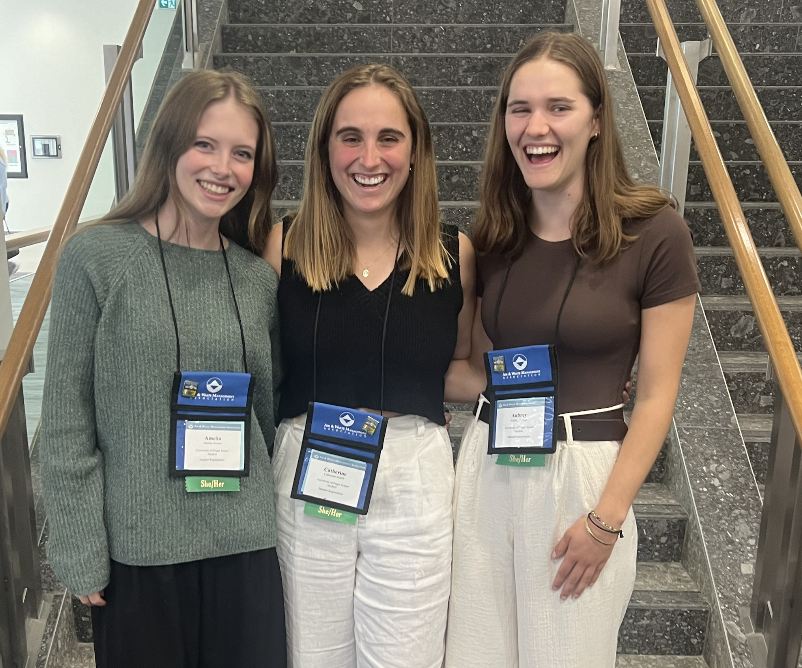Immerse yourself in comparative and international politics while exploring Amsterdam, Brussels, and The Hague.
Politics & Government
1500 N. Warner St. #1052
Tacoma, WA 98416-1052
Program Description
Why do states go to war with one another? What kinds of humanitarian responses do nations owe to one another? How can democratic citizens participate actively in government? How do institutions like Congress, the Supreme Court, and the Presidency work? What is the nature of the conflict between actors like Israel and Palestine; North Korea and South Korea; or Iran and the U.S.? And what are the possible resolutions to these conflicts?
Students in the Department of Politics and Government (P&G) study the struggle over power, authority, freedom, justice, war, and peace at the local, state, national, and international levels. They examine systemic oppression in all its forms; the ways individuals and groups work to ameliorate their circumstances; and how law, economics, and institutions shape political outcomes around the globe.
- Policy analyst
- Radio journalist
- Campaign advisor
- Foreign service officer
- Nonprofit organizer
- Lawyer
- How to be an effective citizen and political actor
- Skills in analysis, writing, and oral communication
- To understand local, national, and international politics broadly
- To develop a deeper knowledge in one of the following fields:
- U.S. politics
- Political theory
- International relations
- Comparative politics
- Law, politics, and society

"Having this research grant has really allowed me to just kind of dive into something I'm passionate about and marry it with my academic passions, social history, media history, and study something I wouldn't have been able to."
Detention is one of the most extreme forms of state control. This class explores the theoretical justifications for state detention, the effectiveness of this policy tool, the politics that lead to its use and acceptance, and the impacts of detention, both on the individual and various communities. Looking at the variation across three policy areas, criminal justice, the war on terror, and immigration, highlights what forces are at work on all three and what pulls the practices of detention in different directions, providing leverage on questions of justice, the balance of power, and the role of identity in public policy formation.
This course focuses on social welfare policy in the United States. The first section of the course explores ideological debates over the welfare state, theories of welfare state development, and the historical development of the U.S. welfare state in comparative perspective. The middle section of the course explores arguments about challenges to political order created by market dynamics, the question of American exceptionalism, and the intersections of race, gender, and welfare in American political development. Then, we focus on core welfare state policies aimed at addressing problems of unemployment, poverty, access to health care, and old age security. The final section addresses questions about the sustainability of the welfare state, in practical, fiscal as well as ideological terms.
How do emerging democracies confront violent pasts while constructing the political institutions for a stable future? Does the need to heal society outweigh individuals' claims to justice for human rights abuses? In this course students examine the choices post-conflict societies have made and continue to confront throughout Latin America. The region has often been characterized by civil war, autocratic government, and grave human rights violations. At the same time, Latin America has emerged as an innovator of institutional forms that have allowed states to confront violence, seek justice, and transition to democracy--a broad array of institutions known collectively as "transitional justice" mechanisms. In the first half of the course students explore the process through which societies in Latin America have sought to come to terms with violent pasts with a focus on specific country case studies. We situate these individual cases in a broader exploration of transitional justice mechanisms, from criminal prosecutions of past leaders to truth commissions that trade amnesty for information. In the second half of the course students will apply these concepts to an in-depth simulation of peace negotiations. Students will represent the interests of a specific political stakeholder while negotiating the form and functioning of transitional justice institutions that might put the country on a path toward peace, justice, and reconciliation.
This course explores evolving threats to global peace and stability in the post-Cold War era. The class tests the efficacy of traditional theories about international conflict through the examination of a number of contemporary security problems. Attention focuses on issues that are persistent, politically explosive, and global in scope, such as nationalism, migration, and environmental problems. All have potential for generating violent conflict in the world today.
Students explore the concepts of citizenship and personhood in the American political imagination as filtered through a racial valence. Perhaps what is most striking about this valence is the way that it and Americans' conceptions of whiteness, citizenship, and personhood has evolved through America's history. Students will consider what role such images play in constructing a "shared" political community, and to what extent the exclusions they engender strengthen or undermine this community.
This course begins with a brief historical review of the rise of Islam as a political structure and its impact on the region, as well as the development of the Ottoman Empire and its relationship to Europe and European foreign policies. This discussion will be followed by a focus on colonialism and its effects, in particular the development of nationalism, populism, Islamism and Zionism. From there we will consider ways in which scholars have attempted to analyze and understand Middle East politics and institutions, drawing comparisons to state building, authoritarianism, and democratization elsewhere in the world. This will be combined with an investigation of regional and international politics as they relate to the region, from the collapse of the Ottoman Empire to the Cold War, and from the Arab Spring onward. This will include a consideration of military conflicts, terrorism, the role of oil and weapons of mass destruction. We will also turn our attention to a number of cases in both their domestic and international politics, which may include but not be limited to Egypt, Israel and Palestine, Saudi Arabia and Iran. Students will have the opportunity to investigate particular topics and cases through in depth research and writing and presentations.
Experiential Learning
A sampling of ways our students learn through experiences:
- Internships: Congressional offices and immigration law
- PG 399 Cuba: From Revolution to Evolution was a traveling study course that included a ten-day visit to Cuba
- Will Keyes '20 explored ethnic relations in urban centers in post-Apartheid South Africa with a Pohlad Award
- Summer research grants like Lucy Gifford '24, "Women's Roles in Refugee Camps," and Nate Sansone '24, "The Effect of Lung Cancer Stigma on the Ability of Individuals with Lung Cancer in the United States to Live and Pursue Happiness"
Where Our Graduates Work
Our alumni work at:
- National Public Radio
- California Department of Justice (deputy attorney general)
- CIA
- State Department, East Asian and Pacific Affairs
- Colorado State Public Defender (criminal defense investigator)
- League of Conservation Voters
- Wesleyan University
Where Our Graduates Continue Studying
Our alumni continue their studies at:
- Georgetown (Masters in Public Policy)
- University of Washington (Law school)
- Seattle University (Masters in Sports Business Leadership)
- Johns Hopkins University (Masters in Public Health)
- University of Pennsylvania (Ph.D., political science)







BEYOND THE CLASSROOM

This Connections course co-taught by professors in P&G and Sociology & Anthropology takes students to Doha, investigating the intersection of politics, culture, history, economics, and education.

Once every three years, a group of students from Puget Sound travels to Asia for nine months of rigorous academic work and experiential learning as part of our Pacific Rim study abroad program.

Students in this program work in legislative offices and then return to campus to understand how Washington politics compares with other states.










